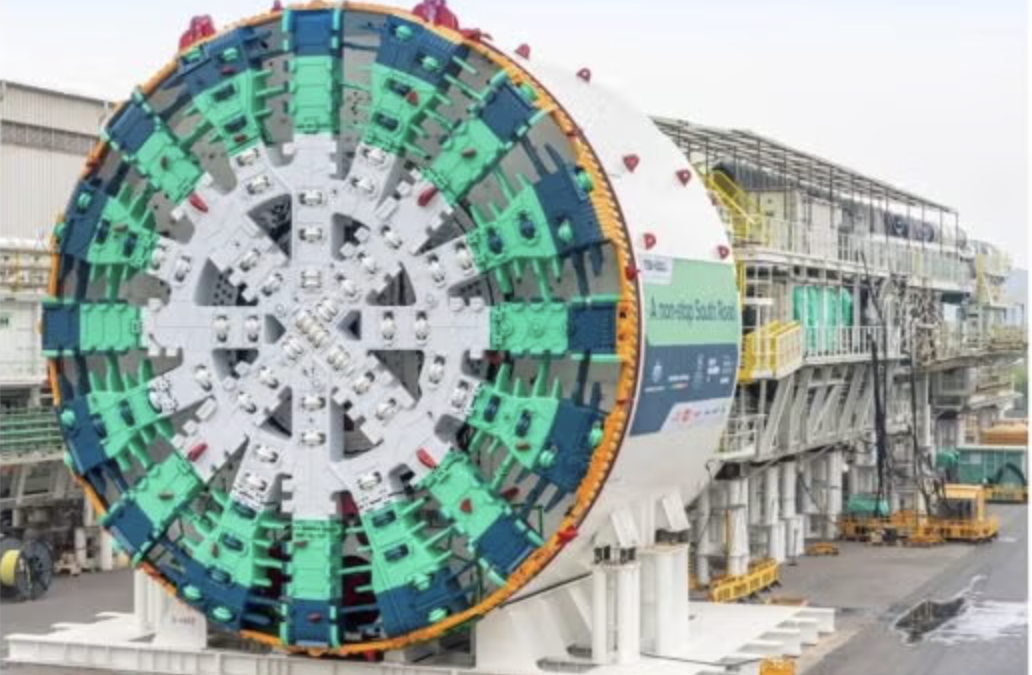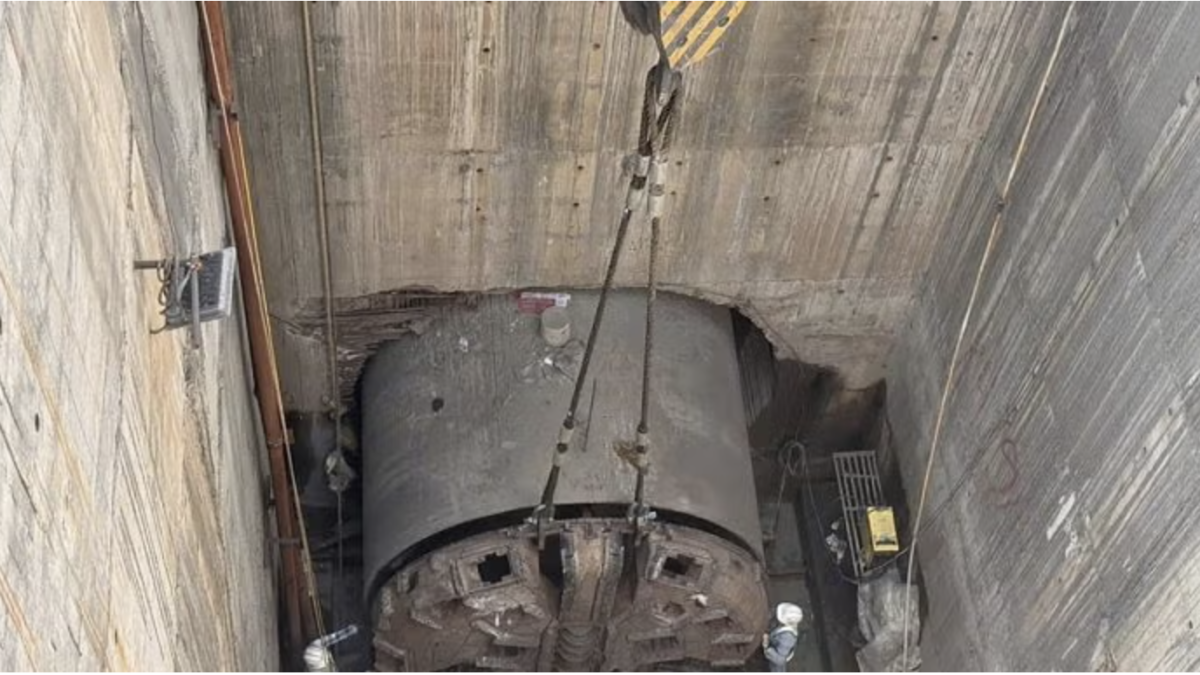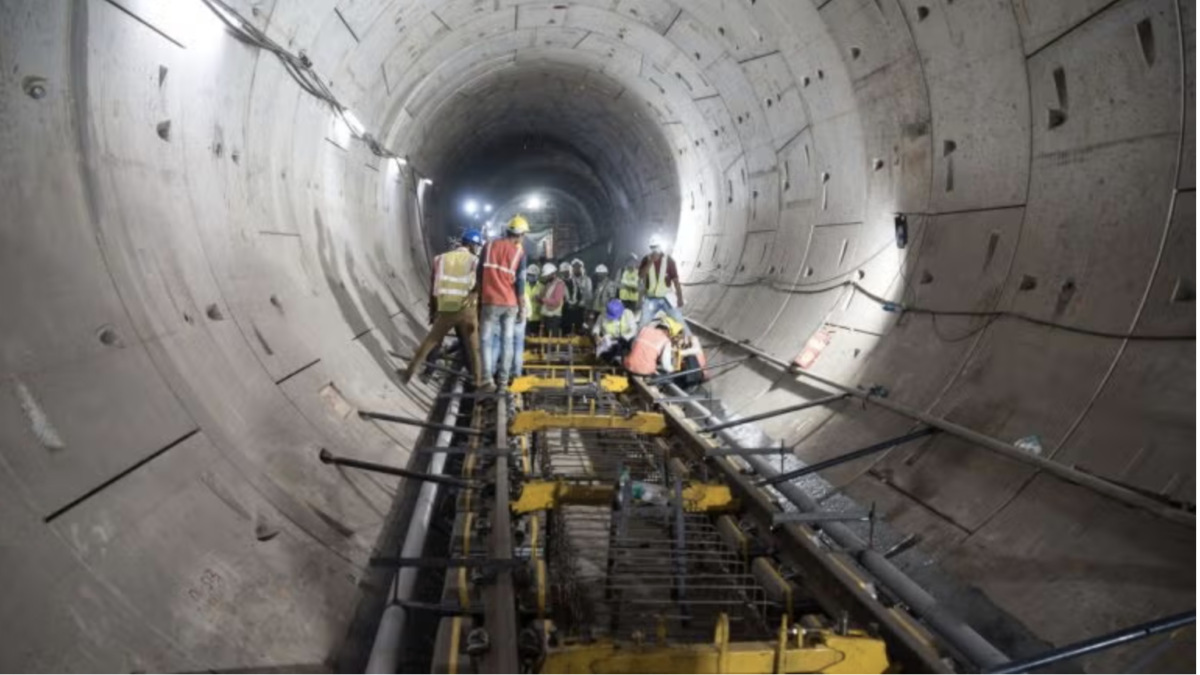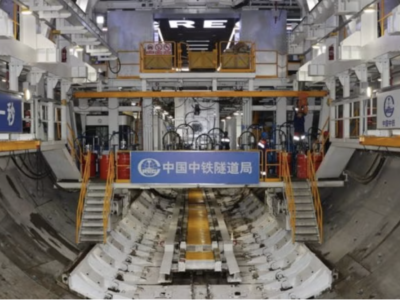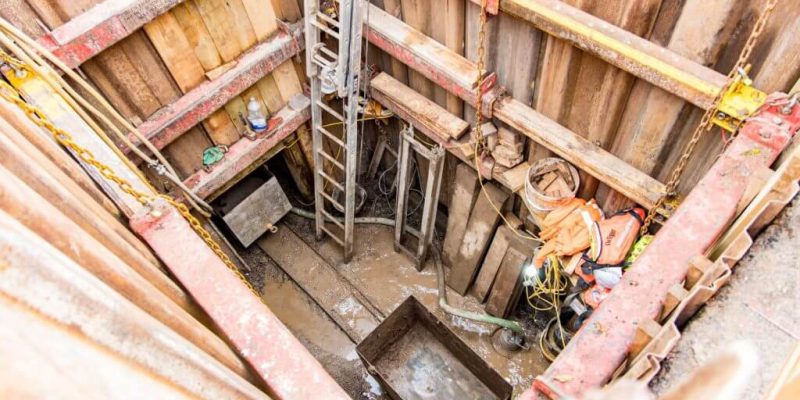
South Gloucestershire Council has supervised a project to mine an 80m tunnel beneath a section of the A4174 Avon Ring Road to replace a badly damaged drainage pipe.
The £500,000 flood resilience program has been delivered with the support of Matt Durbin Associates, the contractor, to control water from the pipe undermining one of South Gloucestershire’s busiest A roads.
As South Gloucestershire Council reports, the pipe could have also provoked flooding further upstream if left unattended.
A CCTV survey demonstrated that the 450mm diameter pipe that is running from the A4174 and beneath Coldharbour Lane was in danger of collapse. Because of multiple gas mains, water mains and other utility services running between the road surface and the pipework below, tunnelling from above was not considered achievable.
Analyzing different options for substituting the pipe was done. However, the most feasible solution was a conventional tunnelling operation using timber supports along the total 80m length of the pipe, and 3m under the road surface.
A ground-penetrating radar study showed two appropriate locations to excavate access pits down to the level of the defective pipe. Tunnelling then started in either direction, following the old pipe’s line, while traffic could continue moving on the A4174 and Coldharbour Lane overhead.
Steel rails were laid so operatives could load wagons before the excavated material was lifted to the surface. Crews were equipped with breathing apparatuses and had to deal with heavy rain that resulted in wet working conditions under the surface.
The council declared that the project has been complicated and labor-intensive. The crew tunneled along the pipe at about 1.5m per day, with approximately 300t of waste material manually bored.
Temporarily, the water flow in the old pipe was diverted for enabling the new pipe to be installed. Also, the tunnel was backfilled and reinforced with concrete.
The cabinet member responsible for transport at South Gloucestershire Council, Councilor Steve Reade, expressed: “South Gloucestershire is known for its mining heritage and the underground tunnelling operation required for this complex project is reminiscent of those industrial years, with traditional methods being used. We’ve done everything possible to keep traffic moving and disruption to an absolute minimum while the work takes place. Keeping our roads safe is a top priority and it was essential we replaced the damaged section of pipe before the road surface above was compromised, and flooding became an issue.”
He also added: “By tunnelling 3m underneath the road surface and 80m along the length of the pipe, we could keep traffic moving above while protecting the gas mains and other important utility infrastructure between the road surface and the tunnel below.”
This project which began at the end of August is part of a more comprehensive climate resilience program to enhance the flood resilience of main roads in South Gloucestershire. The plan has received a £3.2M grant from the government under the Department for Transport’s Local Highway Maintenance Challenge Fund scheme.
Based on the council engineers’ arguments, the project is now finished, on time and within budget.


